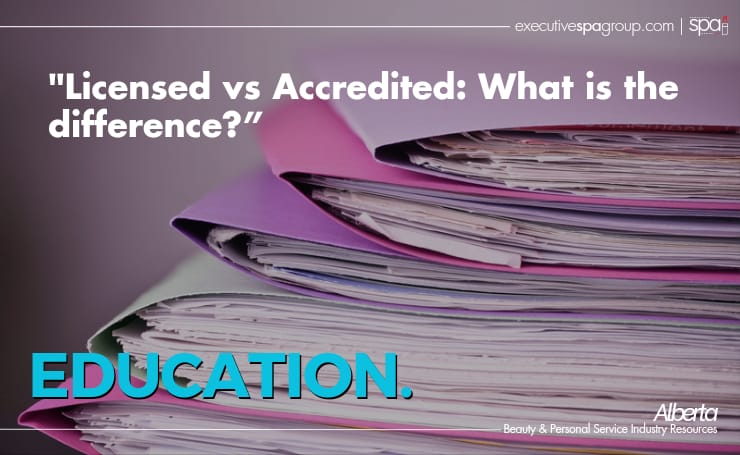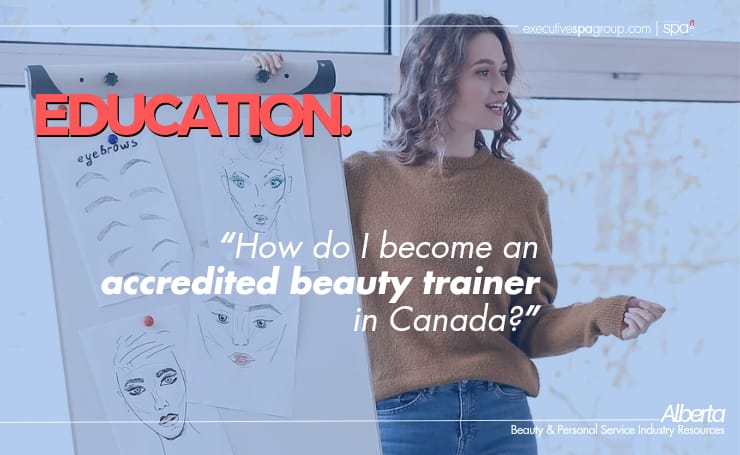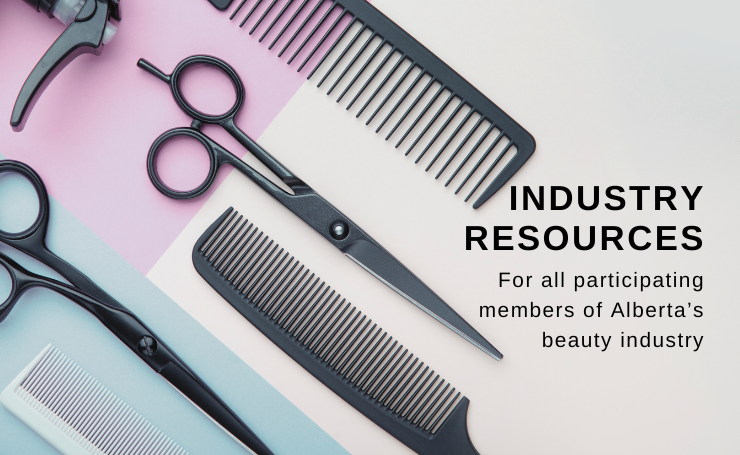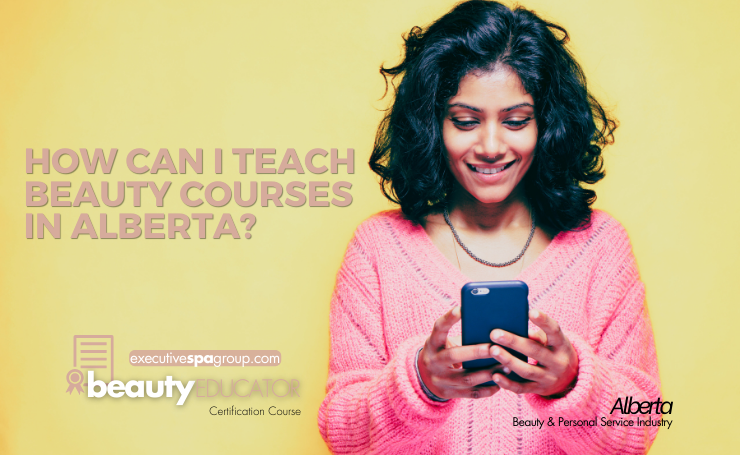apprentice,apprenticeship,hairstylist
Can you teach yourself to be a Hairstylist?
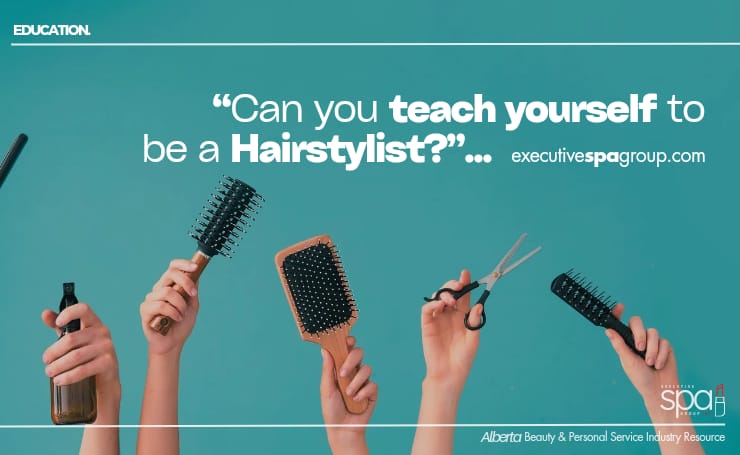
Technically you can teach yourself hairstyling. You can teach yourself to do just about anything these days! You may even be able to practice your self-taught skills on your family and friends. But as for teaching yourself to work as a hairstylist…well, that would be a no-no in Alberta, Canada.
THE APPRENTICESHIP PROGRAM
However, if hair is your passion and you don’t mind going the extra mile, you may want to learn more about apprenticeship. The apprenticeship route to becoming a licensed hairstylist works for motivated people.
The Apprenticeship path will take you two years to complete. This includes a minimum of 1450 hours of on-the-job training and 10 weeks of technical training each year (20 weeks total). The benefit of this route is the cost effectiveness and the real life, hands on training.
STEPS TO OBTAINING YOUR APPRENTICESHIP
1. Secure a job in a salon.

This could be getting hired as a salon technician, receptionist, or retail specialist. Your supervisor should be a Journeyman Hairstylist to train you and confirm your hours worked. You should mention your long term goals during your job interview to ensure you and your hiring manager are on the same page regarding your apprenticeship.
Keep in mind during your apprenticeship that your employer is incurring a timely and financial cost to train you. We recommend making yourself indispensable. For example, take on responsibilities abdicated by others. Consider yourself a student of every aspect of working in a salon. Even the menial labour that nobody else wants to do will prepare you for ultimate success.
2. Apply to be a Registered Apprentice
After securing employment, you may apply to be a Registered Apprentice in Alberta. Once you have completed your application and pay the registration fee, you may be issued an Apprenticeship Card and Blue Book (this is the official record log in which your worked hours are tracked).
As an Apprentice Hairstylist, you are able to buy product (no chemicals!) from salon distribution centres, and you are legally able to handle the tools of the trade.
3. On-the-job hours
Your on-the-job hours are divided into two twelve-month periods. During each period, you are expected to complete 1450 hours (this is 40 weeks based on 35 hours a week).
4. Technical training
Technical training is arranged by Alberta Apprenticeship and Industry Training.
Your technical training is divided into Period One and Period Two. Both are 10 weeks in length (700 hours total). You may be eligible for financial benefits while in technical training. The average cost of tuition for both periods generally doesn’t exceed $2500. Tool kits would be available for learning purposes only, and it would be your responsibility to invest in your kit for your work experience.
5. Testing
Once your on-the-job training, technical training, and corresponding examinations (theory and technical exams for Period One and Two) are successfully completed, you are eligible to take the theory and technical exam for your Interprovincial Red Seal.
DON’T FORGET ABOUT GRANTS AND LOANS AVAILABLE!

- The Canada Apprentice Loan is an initiative of the Government of Canada to help complete your apprenticeship in a designated Red Seal trade. You can apply for up to $4,000 in interest-free loans per period of technical training. The money would be available to help with tuition, tools, equipment and living expenses, to cover forgone wages and to help support your family.
- The Apprenticeship Incentive Grant (AIG) is a taxable cash grant of $1,000 per year, to a maximum of $2,000. This Grant helps registered apprentices get started in the designated Red Seal trades.
- The Apprenticeship Completion Grant (ACG) is a taxable cash grant of $2,000. This Grant helps registered apprentices who have completed their training to become certified journeypersons in the designated Red Seal trades.
- Canada Revenue offers a tax benefit for Tradespersons’ Tools Deduction . Apprentices may be able to deduct the cost of eligible tools bought to earn employment income as a skilled tradesperson.
